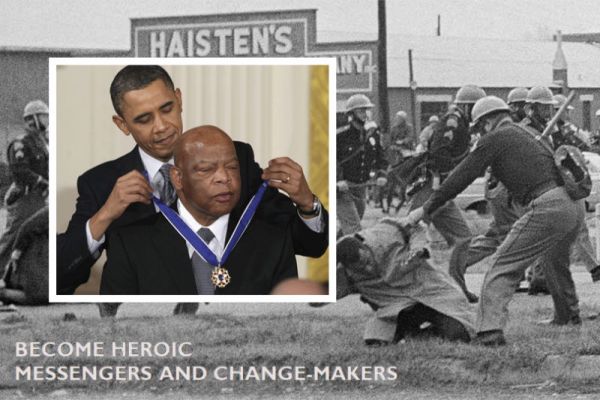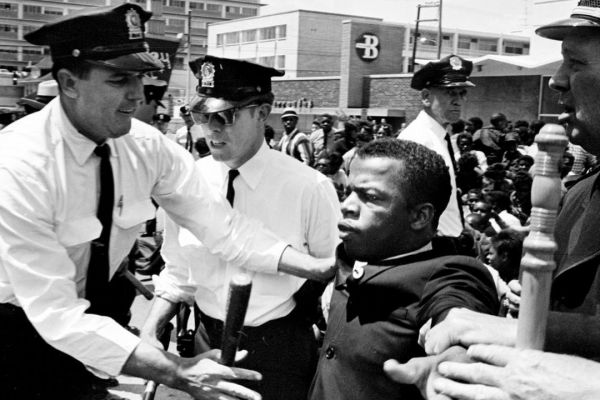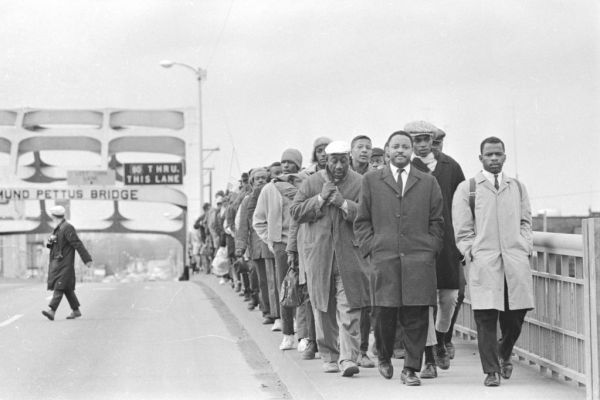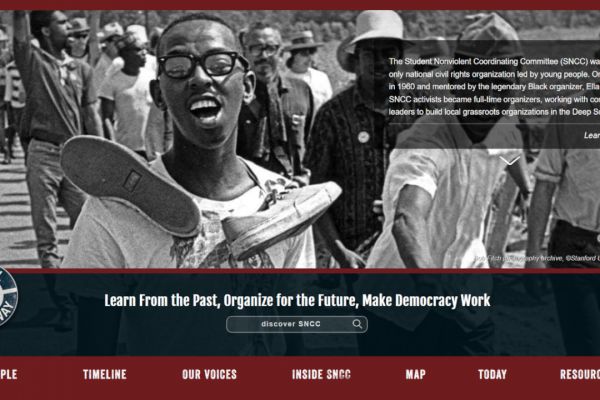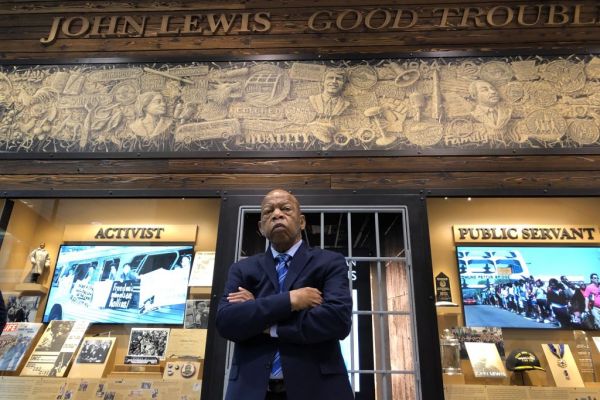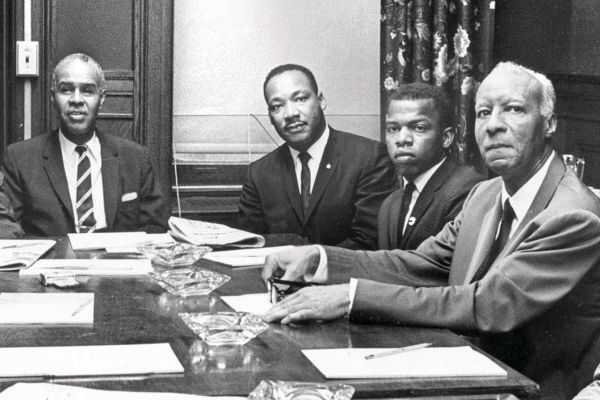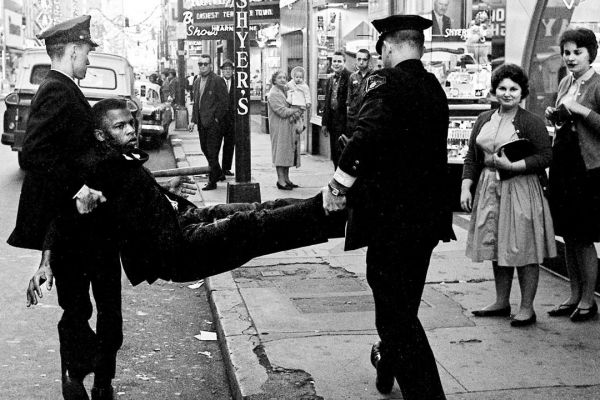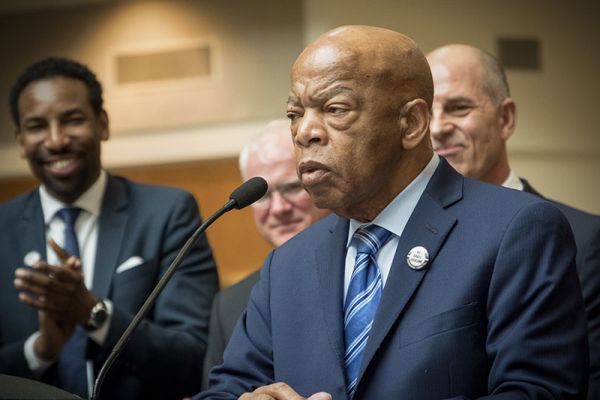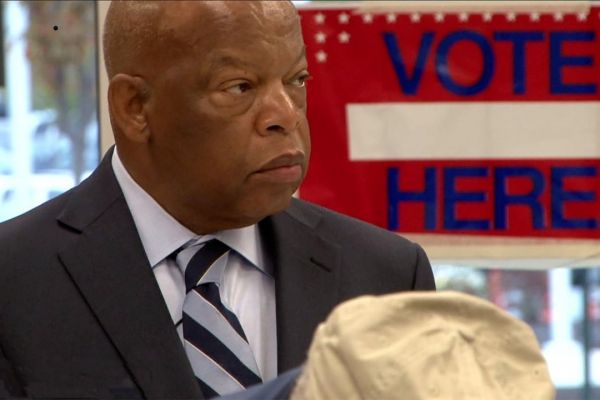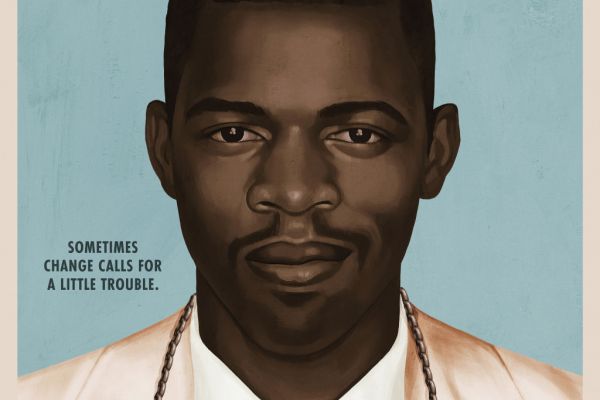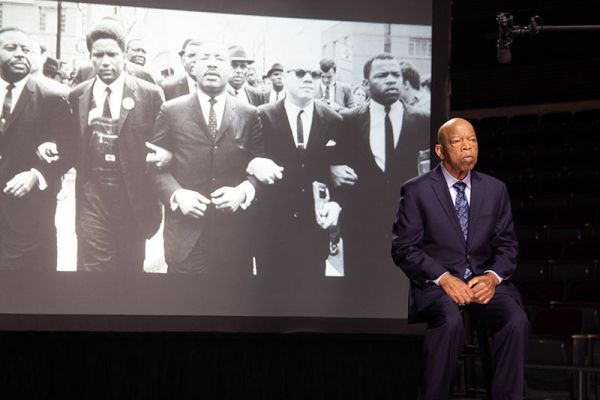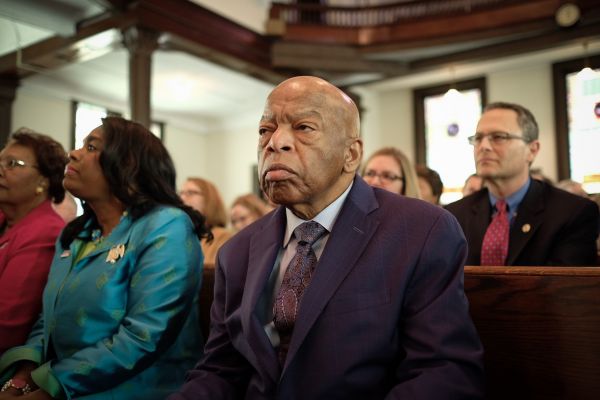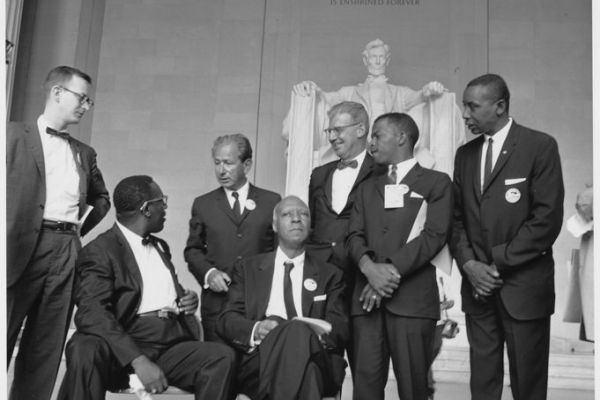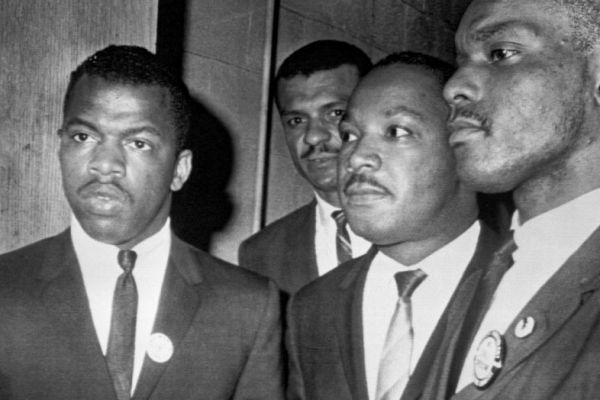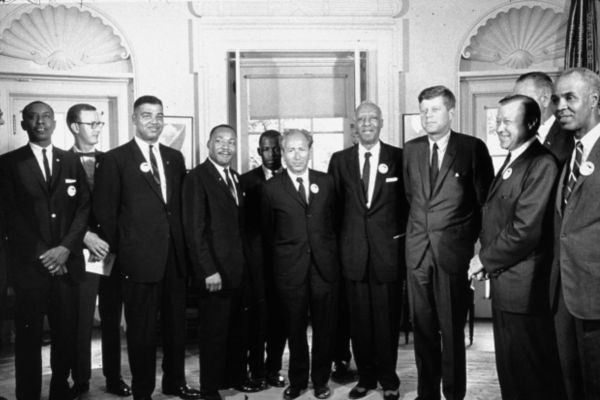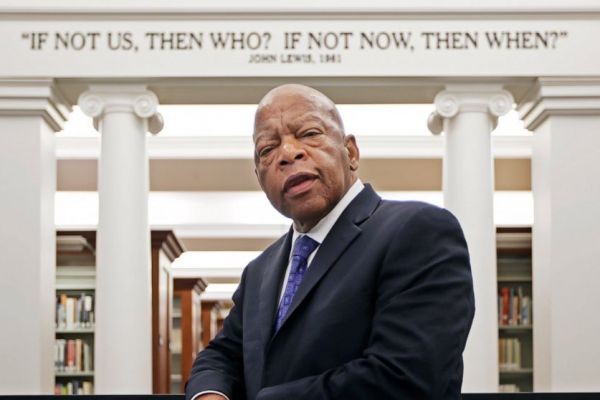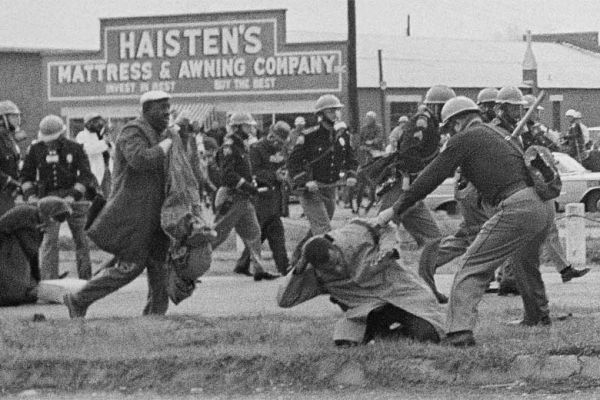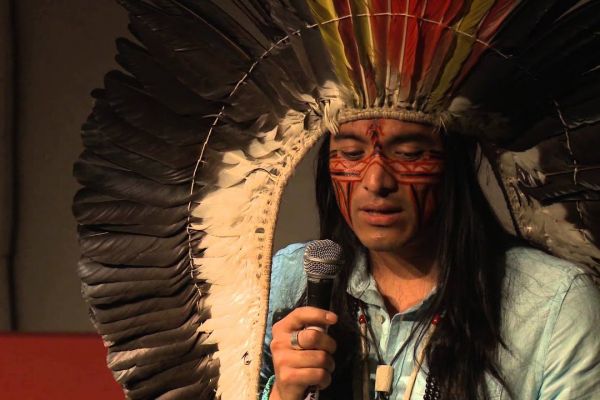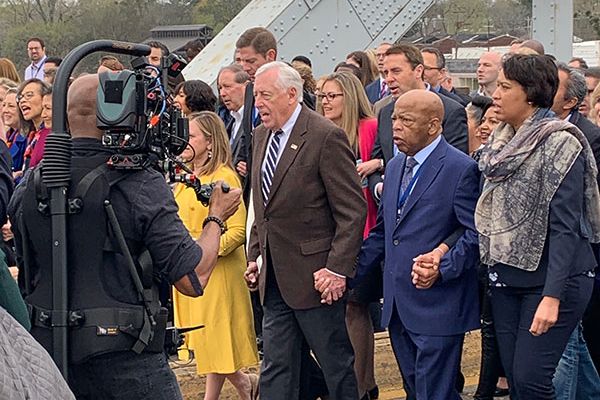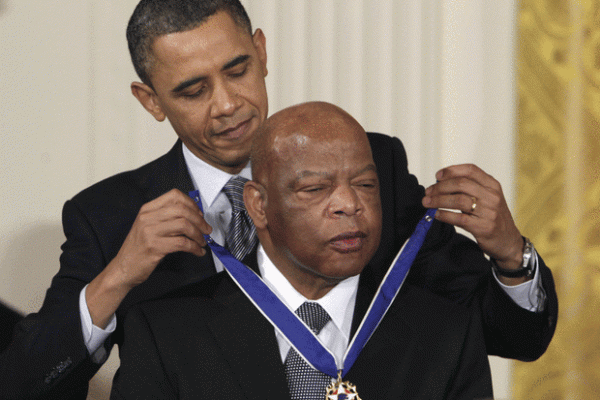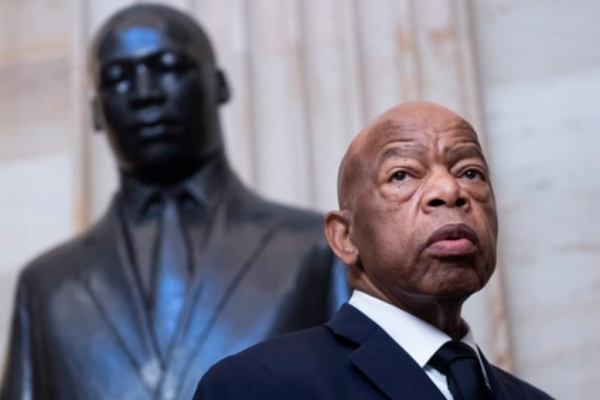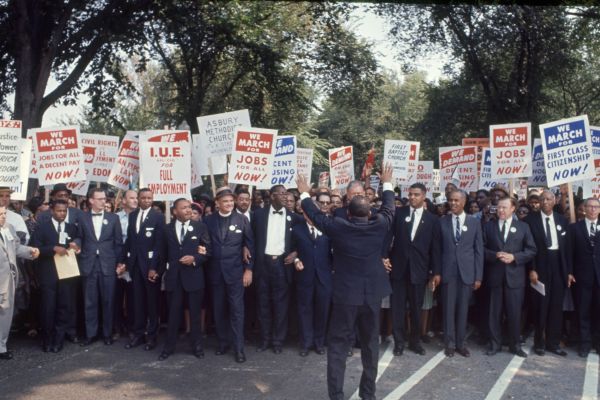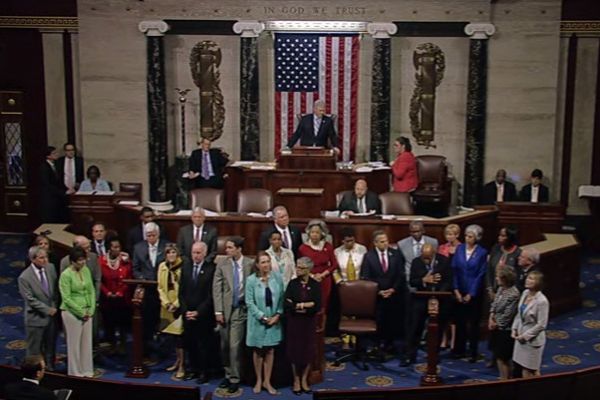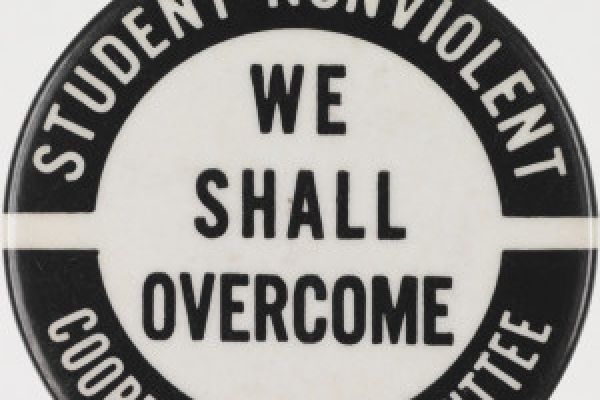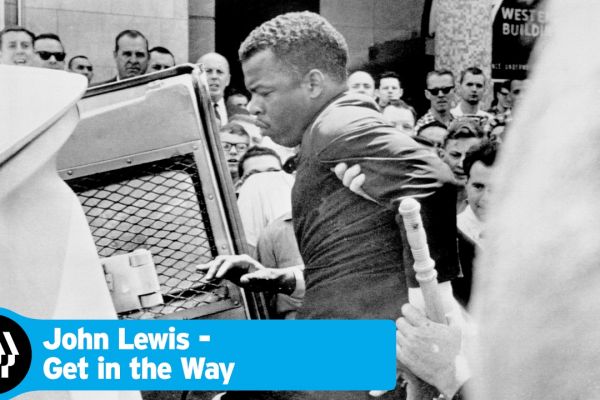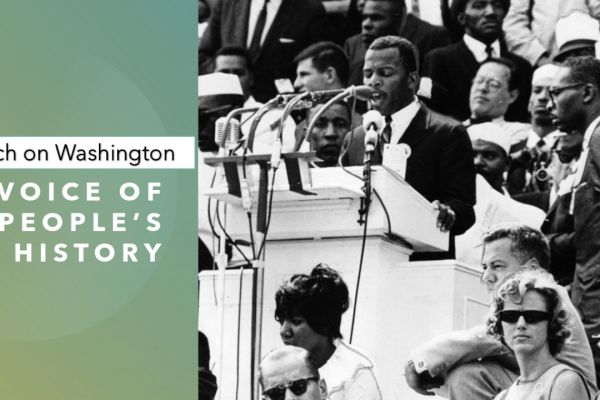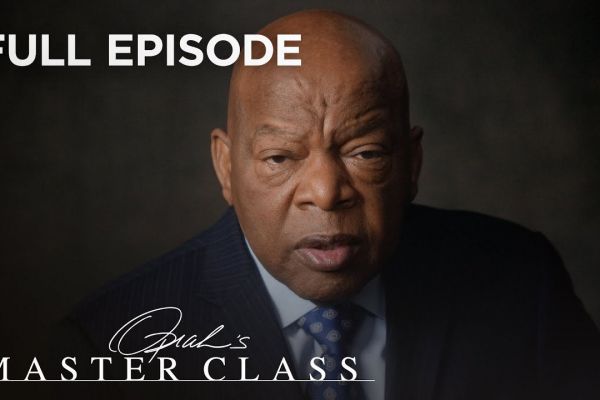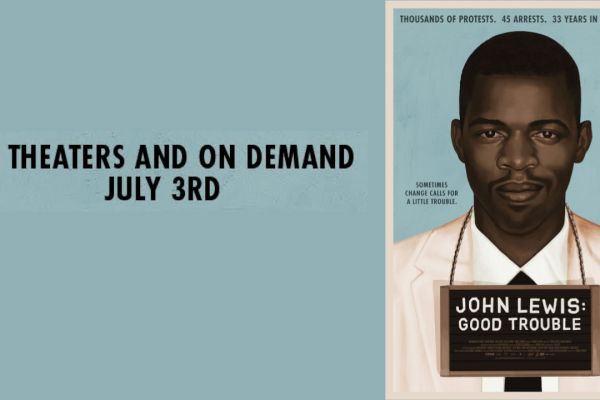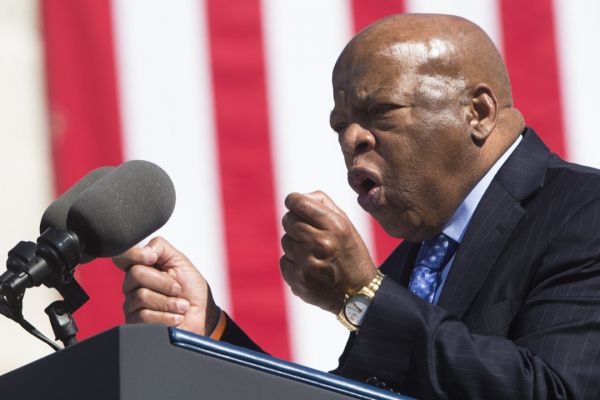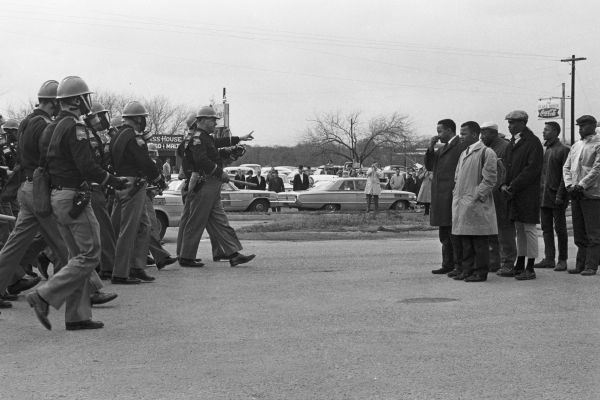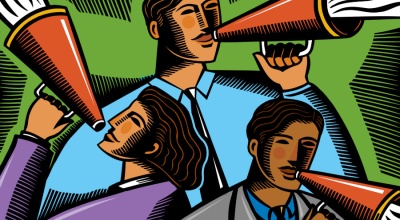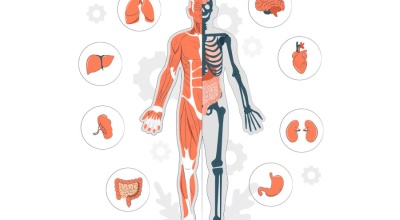Rep. John Lewis, a Civil Rights hero, was a member of the Democratic Party. Lewis served as the Chairman of the Student Nonviolent Coordinating Committee (SNCC) from 1963 to 1966.
American politician and civil rights leader who served in the United States House of Representatives for Georgia's 5th congressional district from 1987 until his death in 2020.
| Member of the U.S. House of Representatives from Georgia's 5th district | |
|---|---|
| In office January 3, 1987 – July 17, 2020 |
|
| Preceded by | Wyche Fowler |
| Succeeded by | Vacant |
| 3rd Chairman of the Student Nonviolent Coordinating Committee | |
| In office June 1963 – May 1966 |
|
| Preceded by | Charles McDew |
| Succeeded by | Stokely Carmichael |
| Personal details | |
| Born |
John Robert Lewis February 21, 1940 Troy, Alabama, U.S. |
| Died | July 17, 2020 (aged 80) Atlanta, Georgia, U.S. |
| Cause of death | Pancreatic cancer |
| Political party | Democratic |
| Spouse(s) |
Lillian Miles |
| Children | John-Miles Lewis |
| Education | American Baptist College (BA) Fisk University (BA) |
John Lewis: Good Trouble www.johnlewisgoodtrouble.com
Using interviews and rare archival footage, JOHN LEWIS: GOOD TROUBLE chronicles Lewis’ 60-plus years of social activism and legislative action on civil rights, voting rights, gun control, health-care reform and immigration. Using present-day interviews with Lewis, now 80 years old, Porter explores his childhood experiences, his inspiring family and his fateful meeting with Dr. Martin Luther King Jr. in 1957. In addition to her interviews with Lewis and his family, Porter’s primarily cinéma verité film also includes interviews with political leaders, Congressional colleagues, and other people who figure prominently in his life.
Video: John Lewis’ Speech at March on Washington
John Lewis was the last living speaker at the March on Washington
Zinn Education Project: Voices of People’s History
As chairman of the Student Nonviolent Coordinating Committee, Lewis would be speaking on the group’s behalf. When his fellow SNCC organizers noticed a table with printed copies for the media of another speaker’s address, they quickly made copies of Lewis’s speech and put it on the same table.
SNCC focused on voter registration and on mounting a systemic challenge to the white supremacy that governed the country’s entrenched political, economic and social structures.
Young activists and organizers with the Student Nonviolent Coordinating Committee, or SNCC (pronounced “SNICK”), represented a radical, new unanticipated force whose work continues to have great relevance today. For the first time, young people decisively entered the ranks of civil rights movement leadership. They committed themselves to full-time organizing from the bottom-up, and with this approach empowered older efforts at change and facilitated the emergence of powerful new grassroots voices.
In March 2003, Lewis spoke to a crowd of 30,000 in Oregon during an anti-war protest before the start of the Iraq War. He was arrested in 2006 and 2009 and outside the Sudan embassy in protest against the genocide in Darfur. He was one of eight U.S. Representatives, from six states, arrested while holding a sit-in near the west side of the U.S. Capitol building, to advocate for immigration reform. Lewis also led the 2016 House Democrats sit-in demanding that the House take action on gun control in the wake of the Orlando nightclub shooting and the failure of the United States Senate to act.
Video: National Museum of African American History and Culture
YouTube Channel Read More: NMAAHC
In 1988, the year after he was sworn into Congress, Lewis introduced a bill to create a national African American museum in Washington. The bill failed and for 15 years he continued to introduce it with each new congress, but each time it was blocked in the Senate, largely by conservative Southern Senator Jesse Helms. In 2002, Helms did not seek reelection, Lewis gained bipartisan support, and in 2003 President George W. Bush signed the bill to establish the museum, with the Smithsonian's Board of Regents to establish the location. The National Museum of African American History and Culture, located adjacent to the Washington Memorial, held its opening ceremony on September 25, 2016.
In January 2001, Lewis boycotted the inauguration of George W. Bush by staying in his Atlanta district. He did not attend the swearing-in because he did not believe Bush was the true elected president.


